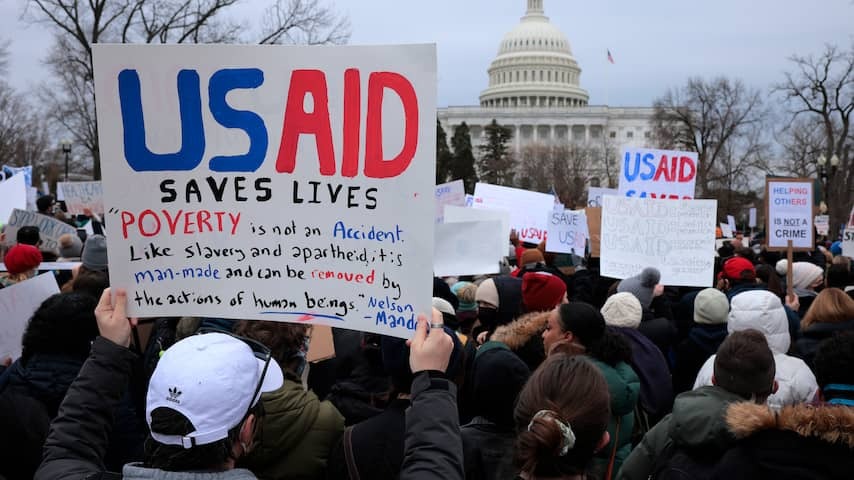
The U.S. House of Representatives has agreed to a $9 billion (7.7 billion euro) cut in public media and foreign aid. Although cuts to HIV and AIDS programs have been scrapped, it is still a huge blow to aid organizations.
The House voted 216 to 213 in favor of President Donald Trump’s austerity package. The United States is cutting about $8 billion from foreign aid programs that fight famine and disease.
The remaining $1 billion will be cut from public media, which includes broadcasters such as NPR and PBS. PBS includes the American Sesame Street.
Earlier this week, the Senate voted for the package after some adjustments. For example, a $400 million cut to the PEPFAR HIV and AIDS program had to be scrapped. That program began under President George W. Bush and has saved tens of millions of lives worldwide, especially in Africa.
That PEPFAR has survived is because the program receives support from senators from both parties. If those cuts had not been scrapped, the proposal would never have been adopted. That’s what Jack Thompson, senior lecturer in American Studies at the University of Amsterdam, tells NU.nl on Friday. “Because it has saved so many lives, it is easy to make a political case for it.”
Although it is good news that PEPFAR is no longer being cut, Andrew Gawthorpe warns of more cuts. Gawthorpe is an America expert and senior lecturer at Leiden University.
“It is a victory in the short term. Trump’s proposed budget for 2026 cuts even more into PEPFAR than was proposed here. The discussion will have to be held again,” he says. “Also because PEPFAR was managed by USAID, which has been abolished, the question remains whether the program can remain so effective.”
Cuts remain ‘disaster’ for foreign aid
In addition, the other cuts are still a major blow to foreign aid, Thompson says. “It involves cuts to USAID, global health programs and refugee assistance. That is a disaster for the role of the US abroad.” Republicans have voted for cuts in foreign aid because they find the money that went to programs in the past too wasteful.
The cuts to public media are also significant, Thompson continues. For example, many American communities depend on public radio stations and TV channels to receive important news. These programs are criticized by Republicans, who believe that the public media are biased against conservative views.
The Trump administration actually wanted to cut much more and put Elon Musk on it. He scrapped all kinds of important government services and tasks, but the momentum faded after a few months. Musk had a fight with Trump and left. The eventual cuts now amount to less than 1 percent of the $1 trillion that Musk had set as his goal.